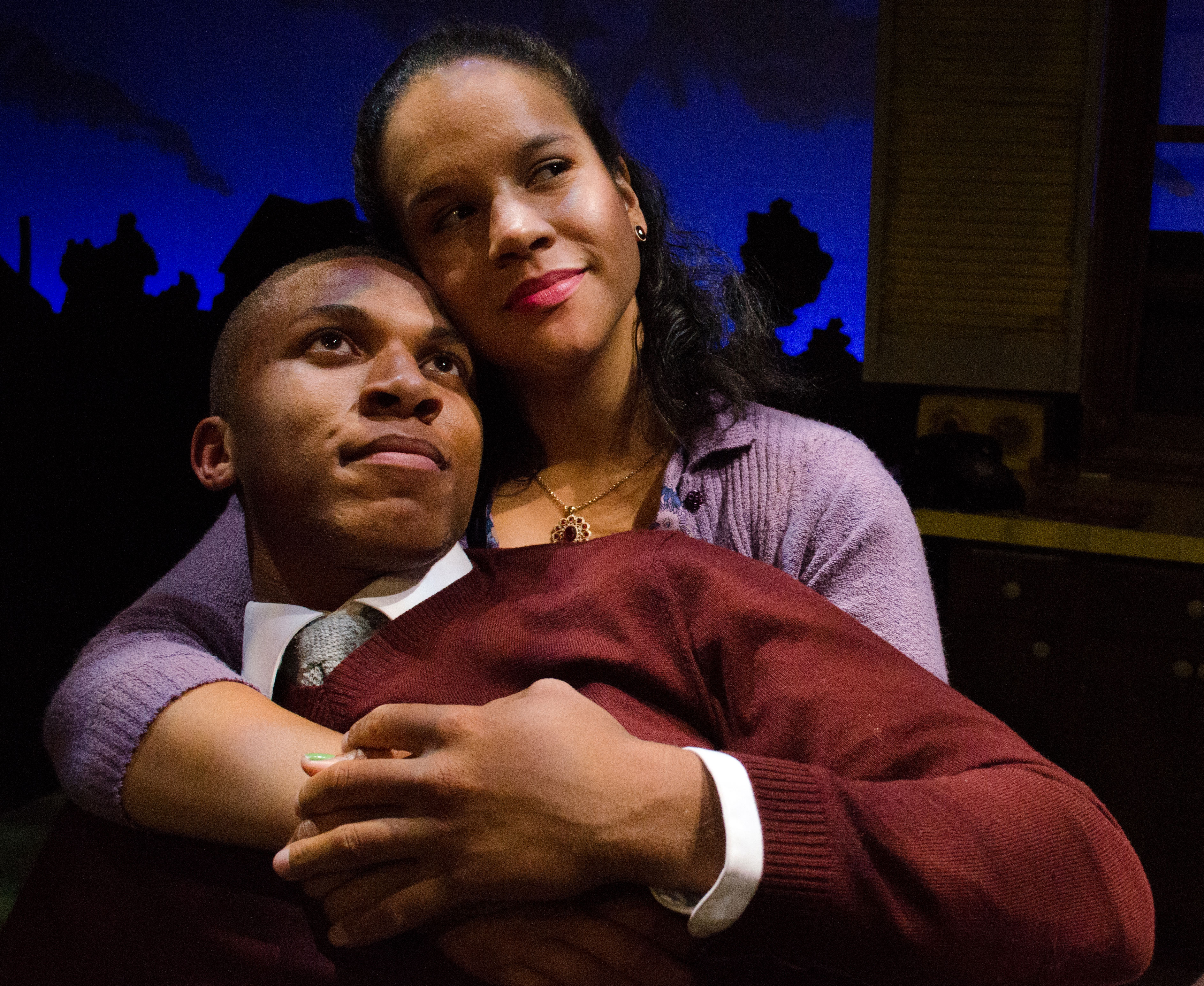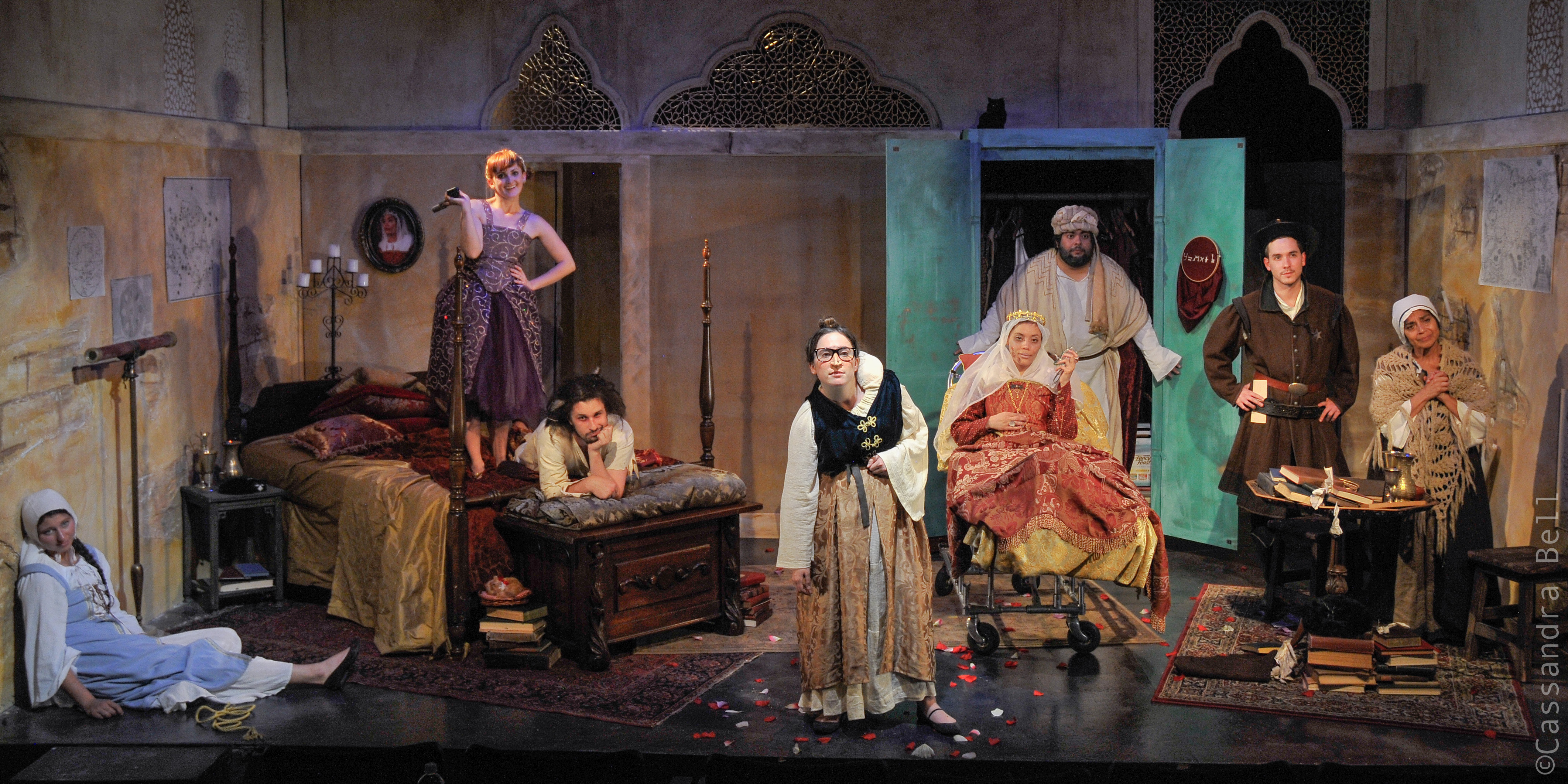Remember George Costanza’s pitch to the networks for a sitcom starring his buddy, Jerry Seinfeld, and how he relished bellowing at the bigwigs when they asked what the show would be about? “Nothing!” he yelled, slicing his hands back and forth to underscore his brilliance. “It’s a show about nothing!!”
ACT’s Below the Belt is a play about nothing, too. Only in the spaces that another playwright might fill with tedious bits of stage business, Richard Dresser instead launches acrobatic stunts of circular logic as dazzling as they are funny. Ultimately—just as Costanza knew—it’s the characters who are the story.
It’s not as though nothing happens, mind you, because there is a framework to the play: Three men find themselves in “the Checking Department” under deadline pressure at a kind of corporate Foreign Legion outpost. The play doesn’t stipulate what the factory makes, disclose the location of the compound where they work, or provide clue one about what’s up with those yellow-eyed animals glowering from just outside the fence.
Rather, Dresser’s work is a comedic marvel of economy, and there’s nothing in his text that doesn’t either advance character or tickle-torture an audience. None of that’s surprising, considering he spent years as a writer toiling in network television. But Below the Belt is a high-wire act of verbal virtuosity, and in bringing it to the stage, director Pam MacKinnon decided to bring in the aces.
Judd Hirsch (last seen locally in Seattle Rep’s 1991 production of Conversations With My Father) reprises his 1996 off-Broadway role as Hanrahan, the irascible everyman who enters every conversation as if it’s an opportunity to practice verbal judo. Just as slow to trust as he is quick to anger, it falls to new arrival and roomie Dobbitt (R. Hamilton Wright) first to figure out what the hell is going on, then to try to make a place for himself. To complicate matters, there’s a nasty bit of work named Merkin (John Procaccino), a boss who believes that divide-and-conquer is a terrific substitute for any semblance of teamwork.
MacKinnon has her actors move in concentric circles that mirror the dialogue; it’s both uproarious and sad to watch them strafe each other with no leavening presence—of a lady, for example—to keep them from devouring one another.
Early on, when Hanrahan’s deficiencies as a typist come to light, Dobbitt offers to help. “But then,” Hanrahan counters, “you’d get the credit.” No, says the eager-to-please newbie; he’d do it to help. “If you don’t take credit, you’d be a fool,” says Hanrahan, who then gets Dobbitt to say he’s not only a fool, but a thief and a liar. The punch-drunk Dobbitt can think of nothing to do but apologize—for what, he has no idea. “Unless your apology is false,” Hanrahan concludes. “Is this contrition, or cowardice?”
Somewhere in this miasma of machismo, these fellows come to feel something for one another, but it’s long after the audience has warmed to them. Hirsch, Wright, and Procaccino make a fine trio of misfits, and if their situation is an exaggeration of our own workplace melodramas, everyone will find something familiar about trying to reason with the unreasonable.
Below the Belt is that rare creature: a comedy that doesn’t play to the lowest common denominator. It’s a play seething with resentment that has fewer dirty words than a Matlock rerun, and this production boasts a cast that will have you wanting to see it again—not for the funny lines, but for the savory performances. I can count on one hand how many shows I’ve seen twice in the years I’ve lived here. I’ll be seeing Below the Belt again, and taking friends, too.








